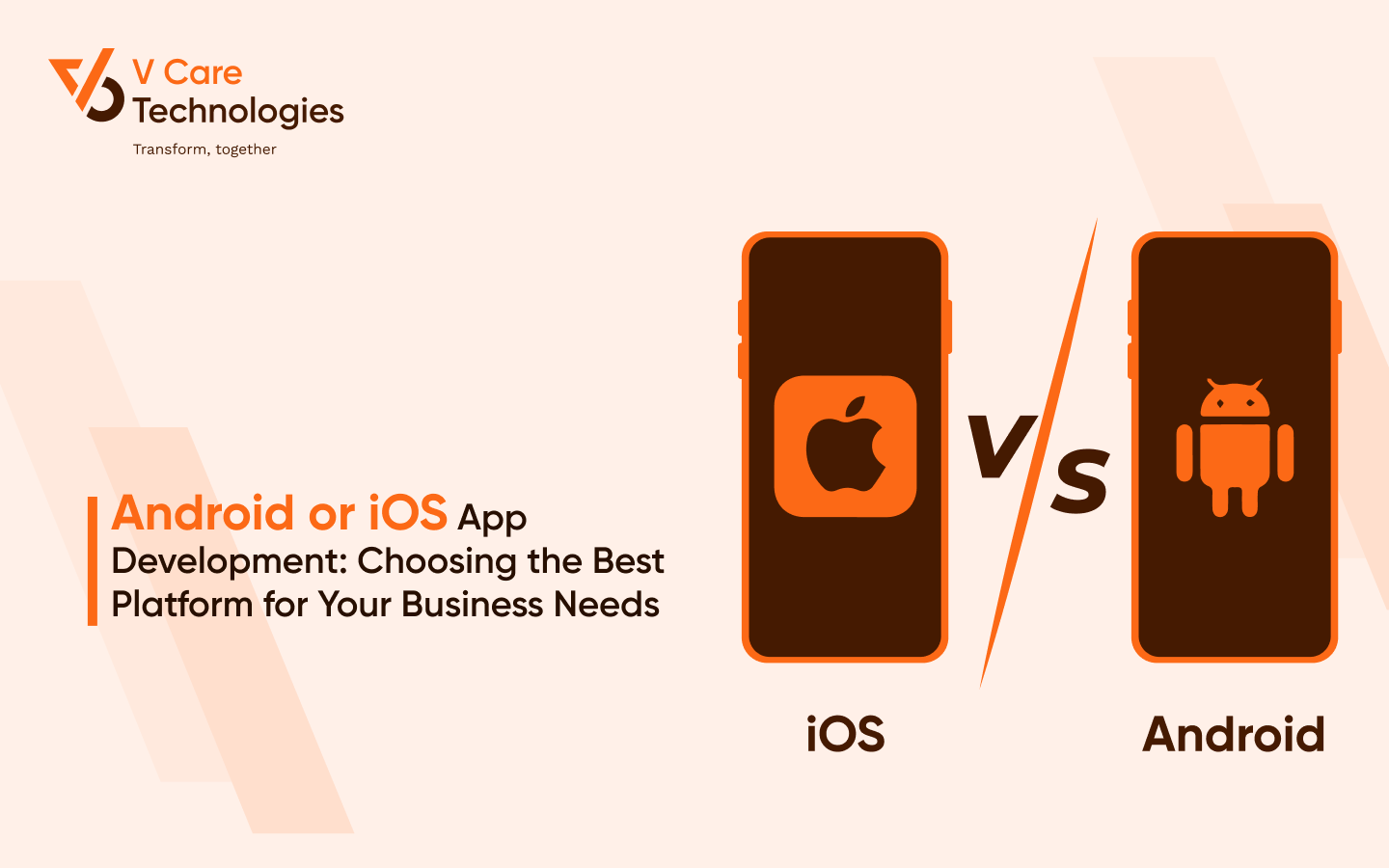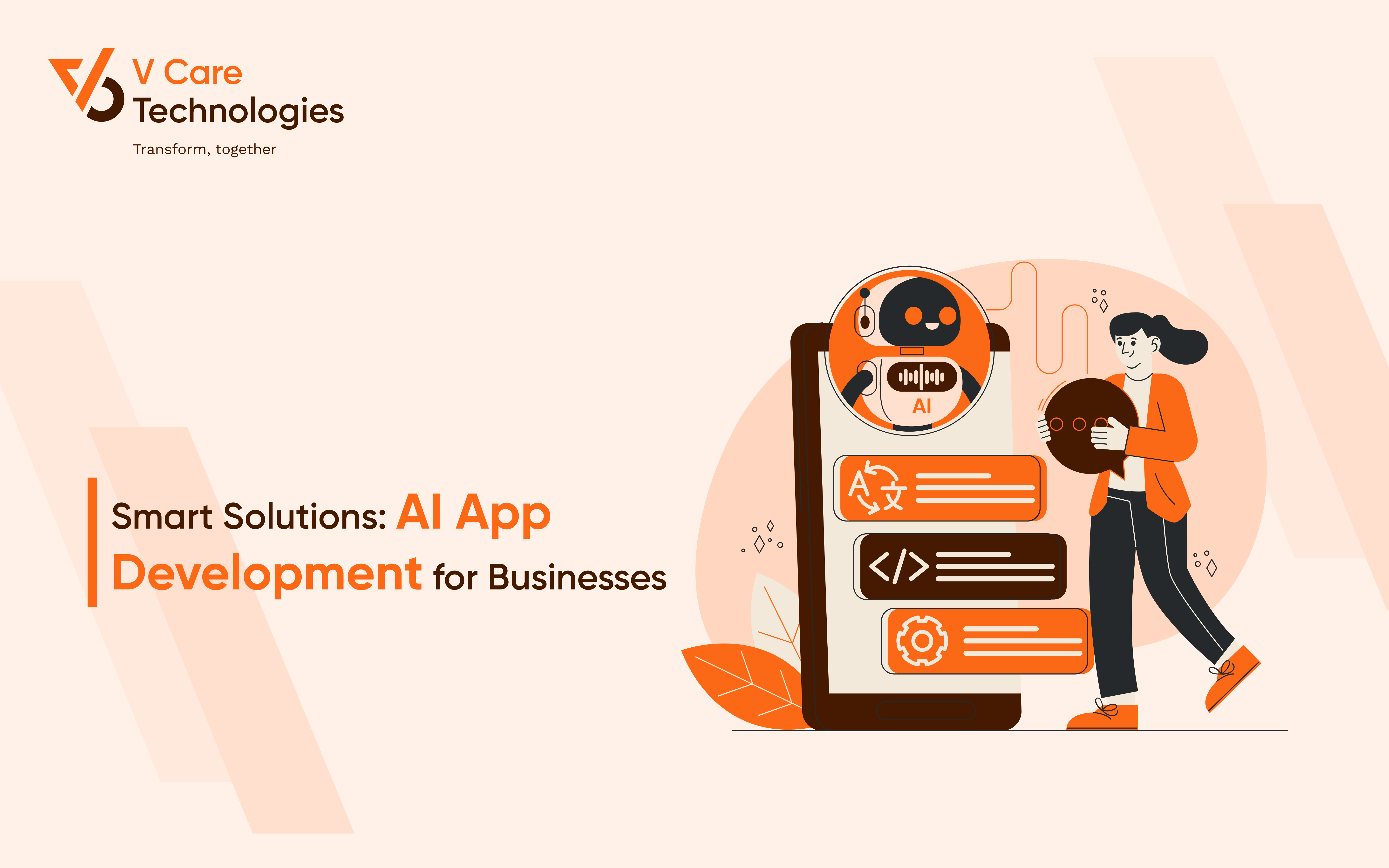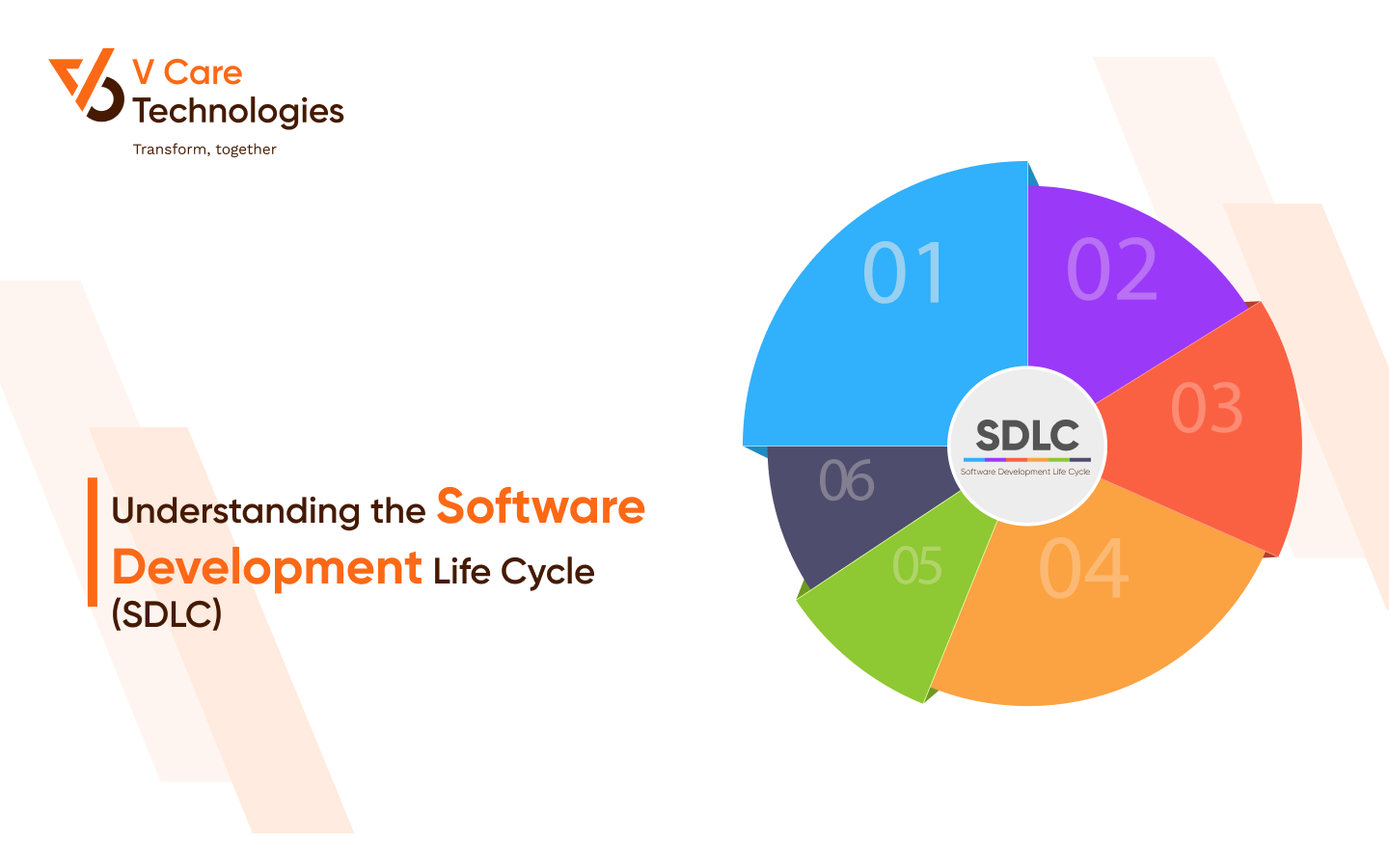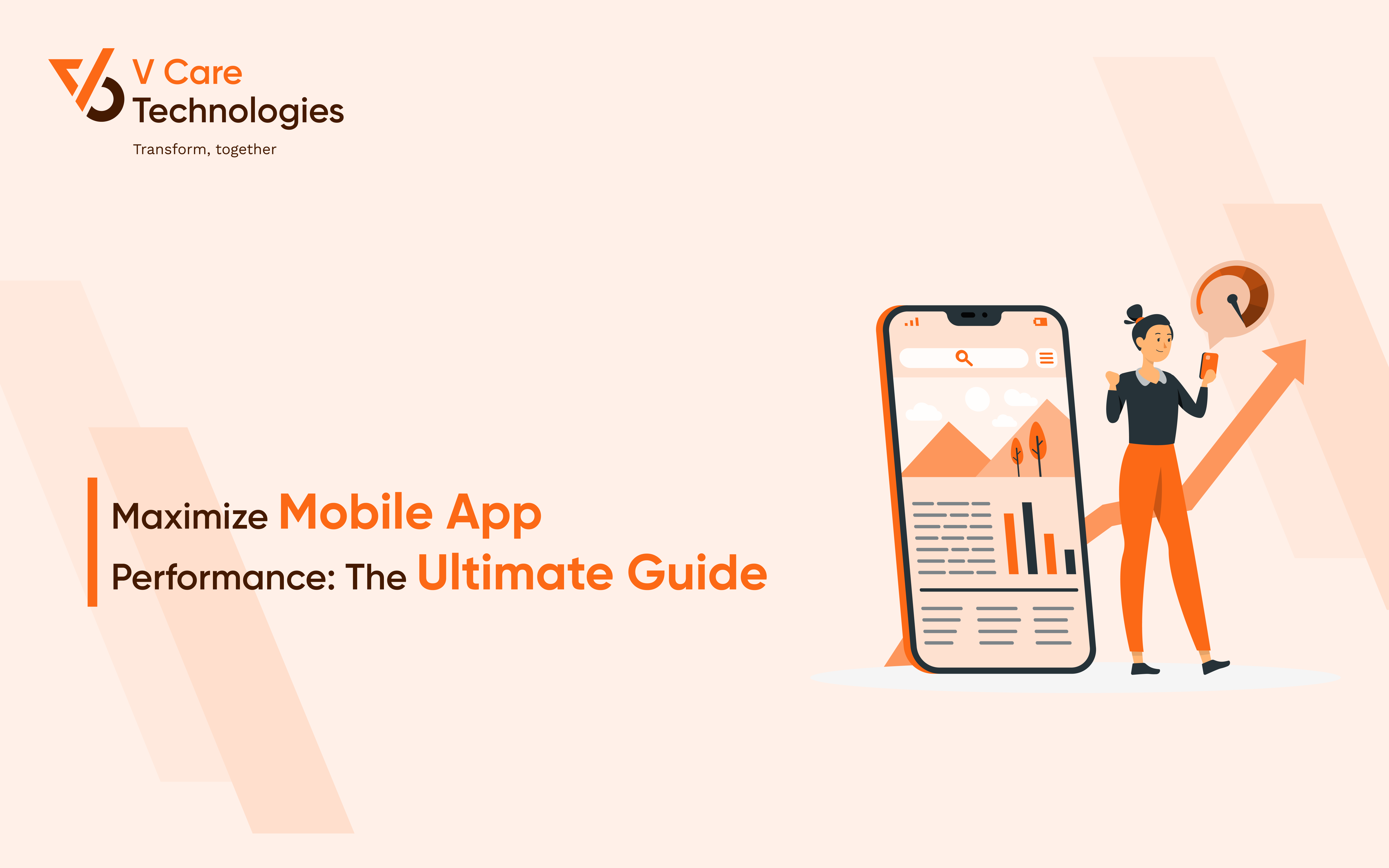Introduction:
In today's mobile-driven world, app development has become an essential part of running a successful business. However, with different platforms like iOS and Android, it can be overwhelming to understand the intricacies of each and choose the right one for your app development needs. In this blog post, we'll demystify iOS and Android app development, explore their market share, compare key factors like speed, ease of use, design, cost, security, and complexity. By the end, you'll have a clear understanding of the differences between iOS and Android and be equipped to make the best decision for your business.
What Really is iOS?
iOS is Apple's mobile operating system exclusively designed for Apple devices, such as iPhones, iPads, and iPods. It provides a seamless and consistent user experience across all Apple devices, with a focus on simplicity, security, and performance. iOS apps are developed using programming languages like Swift or Objective-C and are distributed through the App Store, which offers a curated collection of applications for users to download and enjoy. With its closed ecosystem and stringent app review process, iOS ensures a high level of quality and security for its users.
What is Android App Development Exactly?
The process of building applications for devices using the Android operating system is referred to as Android app development. Android, developed by Google, is an open-source platform that offers greater flexibility and customization options for developers. Android apps are typically developed using Java or Kotlin programming languages and are distributed through the Google Play Store, which provides a vast collection of applications for users to explore. Android's open ecosystem allows for a wide range of device compatibility and offers developers more freedom in terms of customization.
Market Share of iOS and Android Apps
When it comes to market share, Android dominates the global mobile market. Its open nature and availability across various device manufacturers have contributed to its widespread adoption. Android holds a significant advantage in emerging markets, where affordability and a wide range of device options have fueled its growth. On the other hand, while iOS has a smaller market share, it remains a strong contender in developed markets due to its premium devices and dedicated user base.
iOS vs. Android App Development: Speed
When comparing iOS and Android app development in terms of speed, iOS often takes the lead. The closed ecosystem of iOS allows for better optimization, resulting in smoother app performance. Additionally, iOS devices receive timely updates, ensuring that the latest features and enhancements are readily available to users. However, it's important to note that the actual development time can vary depending on factors such as app complexity, team expertise, and project requirements.
iOS vs. Android App Development: Ease of Use
In terms of ease of use, iOS holds an advantage with its user-friendly interface and intuitive design principles. Apple's strict design guidelines ensure a consistent user experience across all iOS apps, making it easier for developers to create visually appealing and intuitive interfaces. Android, while offering customization options, can be more complex in terms of design consistency due to the diverse range of devices and user interfaces.
iOS vs. Android App Development: Design
Design plays a crucial role in the success of an app. iOS follows a design philosophy that emphasizes simplicity, clarity, and minimalism. The iOS design guidelines provide developers with a set of predefined elements and principles to create visually appealing and user-friendly interfaces. On the other hand, Android provides developers with more flexibility to customize the design and user experience. This can be advantageous for businesses looking to create unique and brand-specific interfaces, but it also requires careful consideration to maintain consistency across different Android devices.
iOS vs. Android: A Quick Glance
Let's take a quick glance at some key differences between iOS and Android app development:
- Market share: Android dominates the global market, while iOS holds a strong presence in developed markets.
- Speed: iOS generally offers better performance and faster app execution.
- Ease of use: iOS provides a more intuitive and consistent user experience, while Android offers greater customization options.
- Design: iOS follows a minimalist and consistent design philosophy, while Android allows for more flexibility and customization.
iOS vs. Android App Development: Cost
Cost is an important consideration for businesses when choosing a platform for app development. Android app development is generally more cost-effective due to its open-source nature, lower entry barriers, and a wider range of device options for testing. On the other hand, iOS app development can be costlier due to the need for specialized hardware and the strict guidelines imposed by Apple. However, it's crucial to assess the long-term benefits and potential return on investment when evaluating the cost factor.
iOS vs. Android App Development: Security
Security is a critical aspect of app development, and both iOS and Android prioritize user protection. iOS is known for its robust security measures, including stringent app review processes, sandboxing, and hardware encryption. With its closed ecosystem, iOS provides a more controlled and secure environment for apps. Android, while also implementing security measures, can be more susceptible to malware due to its open nature and the fragmentation within the Android ecosystem. However, Google continuously works to enhance security measures and offers tools for developers to build secure apps.
iOS vs. Android App Development: Complexity
The complexity of app development varies between iOS and Android. Android's open-source nature allows for greater customization and flexibility, but it also introduces complexities in terms of device compatibility and fragmentation. Developers need to thoroughly test and optimize their apps for various screen sizes, resolutions, and hardware capabilities. In contrast, iOS offers a more streamlined and consistent development process with a limited range of device models. This simplicity can be advantageous for developers, but it may limit customization options.
Features Comparison: Difference Between Android and iOS
When comparing the features of Android and iOS, there are several notable differences. Android offers features like widgets, custom launchers, and deeper integration with Google services. On the other hand, iOS focuses on providing a cohesive user experience with features like Siri, FaceTime, and seamless integration with Apple's ecosystem. Understanding these feature differences can help businesses align their app development goals with the capabilities of each platform.
iOS vs. Android App Development: Pros and Cons
Let's summarize the pros and cons of iOS and Android app development:
iOS App Development Pros:
- Streamlined and consistent user experience
- Better optimization and performance
- High-quality app ecosystem with strict review processes
- Higher potential for monetization
iOS App Development Cons:
- Closed ecosystem with limited customization options
- Higher upfront costs and specialized hardware requirements
- Smaller market share compared to Android
Android App Development Pros:
- Open-source platform with greater customization options
- Larger market share and potential for a diverse user base
- Lower upfront costs and wider device compatibility
- Easier app distribution through multiple app stores
Android App Development Cons:
- Fragmentation across devices and operating system versions
- More susceptible to security risks and malware
- Design consistency challenges across various devices
iOS vs. Android: Which One Should Businesses Choose?
Choosing between iOS and Android app development depends on your business needs, target audience, budget, and development expertise. If you're targeting a global market and cost-effectiveness is a priority, Android might be the better choice. On the other hand, if you're targeting a more affluent audience and value a streamlined user experience, iOS could be the preferred platform. It's crucial to conduct thorough research, evaluate your target market, and consider the long-term goals of your app before making a decision.
Wrapping Up
In this blog post, we explored the world of iOS and Android app development. We discussed what iOS and Android really are, their market shares, and compared key factors like speed, ease of use, design, cost, security, and complexity. We also highlighted the pros and cons of each platform to help you make an informed decision for your business. Remember, there is no one-size-fits-all solution, and the choice between iOS and Android depends on your specific requirements and target audience.
FAQs:
Are Android apps easy to develop?
Ans. Developing Android apps can be relatively easier due to the availability of open-source tools, a wide range of resources, and a larger developer community. However, it still requires proficiency in programming languages like Java or Kotlin and thorough testing for device compatibility.
Which is the best language for iOS app development?
Ans. The primary languages for iOS app development are Swift and Objective-C. Swift has gained popularity for its modern syntax, safety features, and ease of learning, making it a preferred choice for many developers.
Is Kotlin better than Java?
Ans. Developing Android apps can be relatively easier due to the availability of open-source tools, a wide range of resources, and a larger developer community. However, it still requires proficiency in programming languages like Java or Kotlin and thorough testing for device compatibility.
Are Android apps easy to develop?
Ans. Kotlin is a modern programming language that offers several advantages over Java, such as concise syntax, null safety, and enhanced productivity. While both languages are widely used for Android app development, many developers find Kotlin more efficient and enjoyable to work with.
Remember, the choice between Kotlin and Java depends on your familiarity with the languages and the specific requirements of your app development project.




 About us
About us Services
Services Projects
Projects Blogs
Blogs





